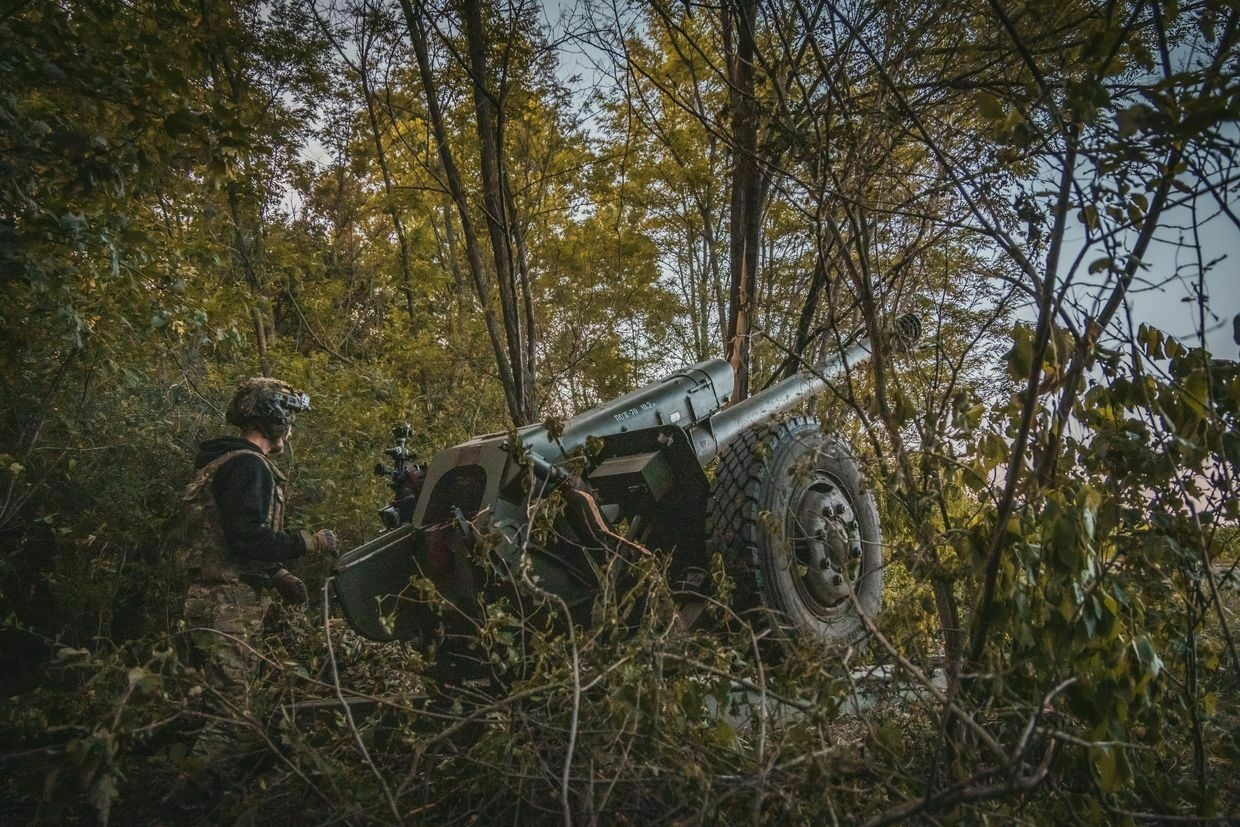
Key developments on June 30:
- Ukrainian forces push Russian army away from Sumy, General Staff says
- Ukrainian military again denies reports on Russian troops entering Dnipropetrovsk Oblast
- After months of stalling, Russia blames Ukraine, US for slow pace of peace talks
- Germany vows to pursue ‘every path’ to boost Ukraine’s air defenses, FM Wadephul says in Kyiv
Ukrainian forces have stabilized the situation in Sumy Oblast and pushed the Russian army further away from Sumy, the region’s capital, Ukraine’s General Staff reported on June 30.
Moscow launched its new summer campaign in May, aiming to push deeper into Ukraine’s northeastern and eastern regions and disregarding Kyiv’s calls for an unconditional ceasefire.
Ukrainian troops advanced near the village of Oleksiivka, located less than 30 kilometers (18 miles) from the city of Sumy, and liberated the village of Andriivka, which had been captured by Russia in early June, the statement read.
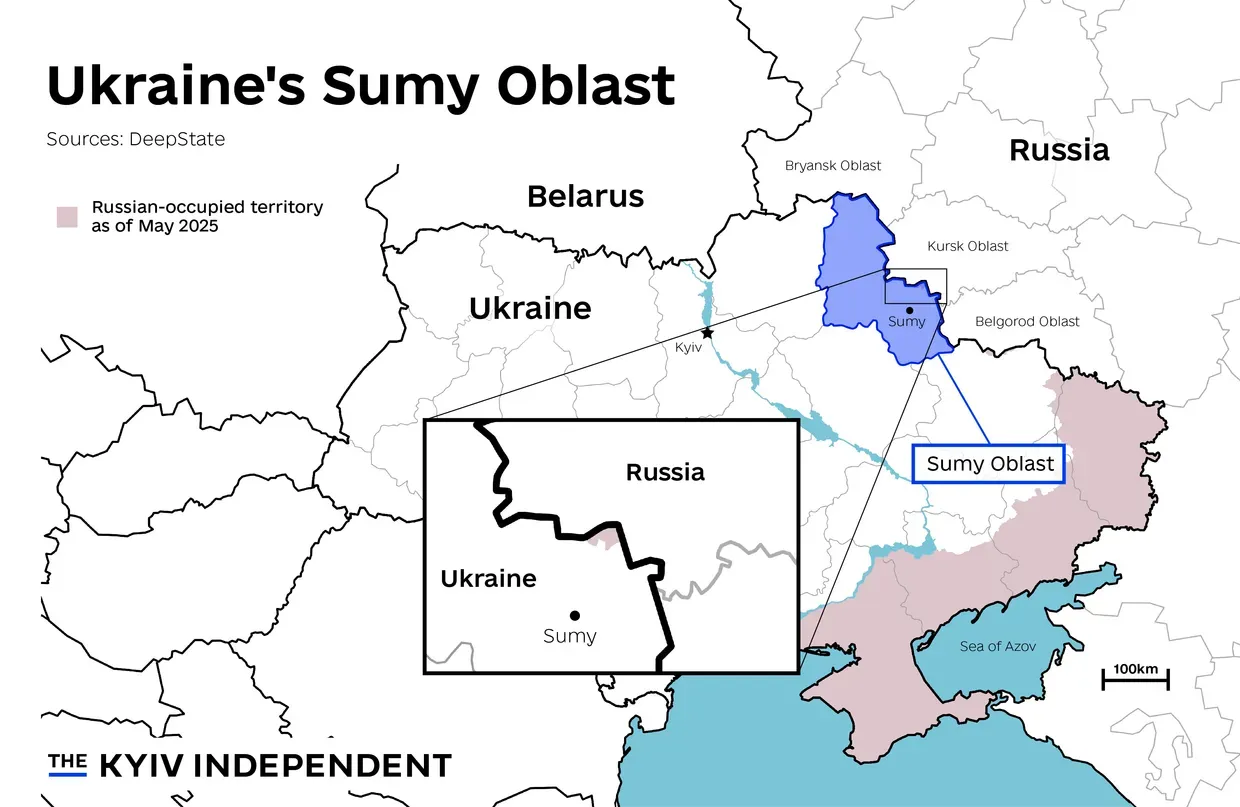
In the meantime, Ukraine also stopped the Russian advance along the Yunakivka-Yablunivka-Novomykolayivka-Oleksiivka-Kindrativka line and the border with Russia near Kursk Oblast, according to the General Staff.
Russia has deployed its best brigades on this section of the front line and is using long-range artillery, aircraft, and attack drones, the General Staff said.
President Volodymyr Zelensky also said on June 30 that Ukrainian troops had halted the Russian offensive in Sumy Oblast.
“The Russian plan for an offensive in Sumy Oblast is not succeeding — thanks to every Ukrainian unit operating in the area,” Zelensky said after a meeting with the military leadership and Defense Minister Rustem Umerov.
 The Kyiv IndependentYuliia Taradiuk
The Kyiv IndependentYuliia Taradiuk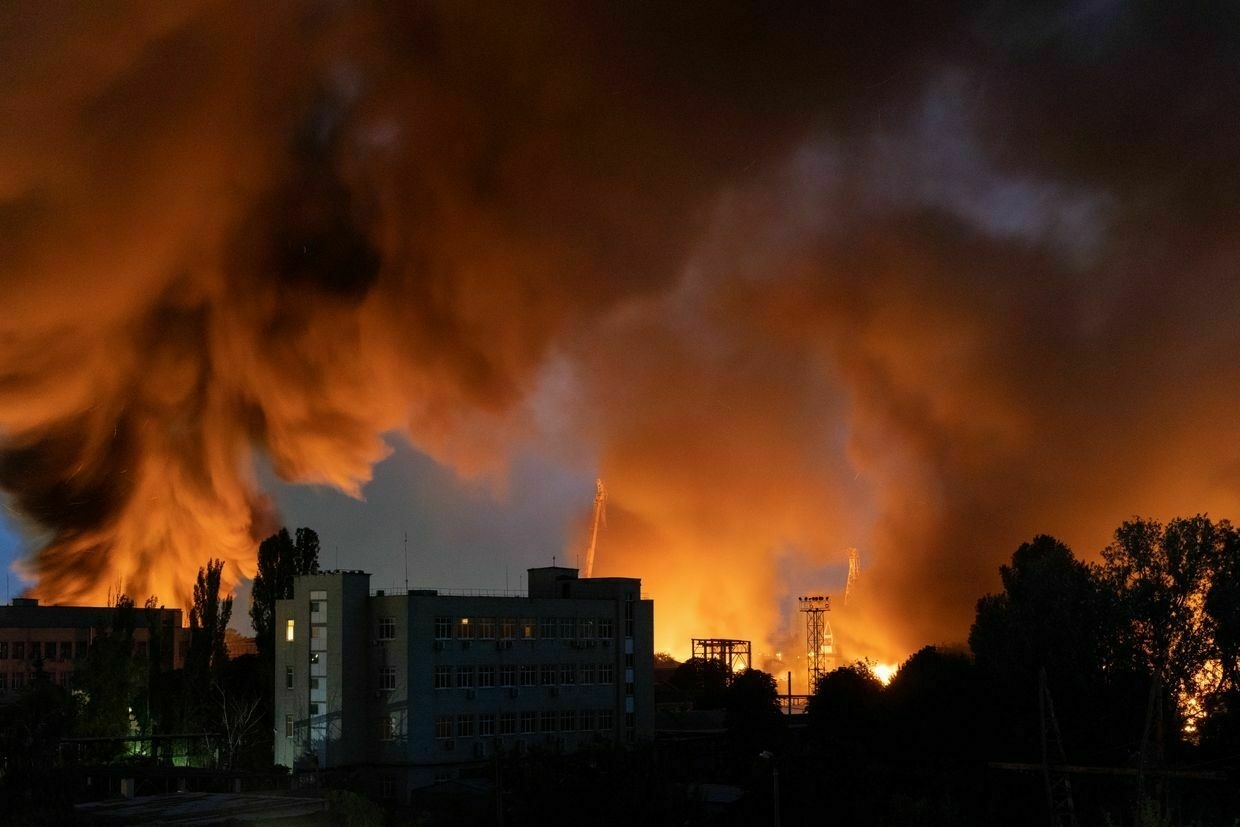
Ukrainian military again denies reports on Russian troops entering Dnipropetrovsk Oblast
The Ukrainian military on June 30 denied the latest reports that Russian troops had entered Dnipropetrovsk Oblast.
Since June 29, the Ukrainian battlefield monitoring group DeepState has marked a “gray” zone in Ukraine’s Dnipropetrovsk Oblast, identifying potential fighting in this section of the front line. Near the village of Dachne in Dnipropetrovsk Oblast, the zone extends almost a kilometer into the region.
Meanwhile, Kremlin propagandists claimed on Telegram that Russian troops had captured Dachne.
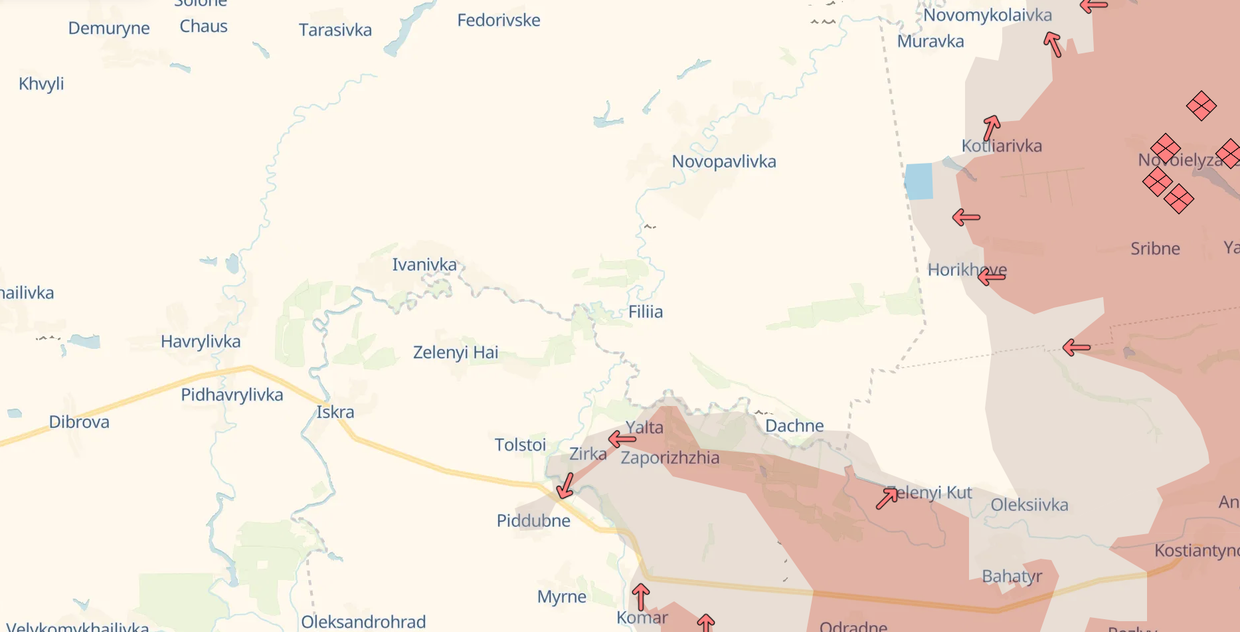
The reports were denied by spokespeople of two Ukrainian brigades and the Khortytsia group of forces on June 30, Suspilne reported.
“There are very active battles in the villages located near the administrative border of the region,” Viktor Tregubov, spokesperson for Ukraine’s Khortytsia group of forces, told Suspilne, adding that Ukraine is holding the defense line near the villages of Yalta, Komar, and Shevchenkove.
Tregubov added that Russian troops had not entered Dnipropetrovsk Oblast as of noon on June 30.
The press service of the 3rd brigade of the National Guard, stationed in the nearby Pokrovsk sector of the front line, also denied the information about the breakthrough.
Nazar Voitenkov, spokesperson for the 33rd Separate Mechanized Brigade, based in Zaporizhzhia Oblast, also said that the Russian army had made no advances into Dnipropetrovsk Oblast.
“We are holding the defense line. The line is constantly changing, but the enemy has not broken through,” Voitenkov said.
Andrii Kovalenko, head of Ukraine’s counter-disinformation center, said on Telegram that fighting is taking place near the region’s administrative border, and Russian FPV (first-person-view) drones are also flying into Dnipropetrovsk Oblast,
But despite the heavy battles, there is no breakthrough, he added.
 The Kyiv IndependentKollen Post
The Kyiv IndependentKollen Post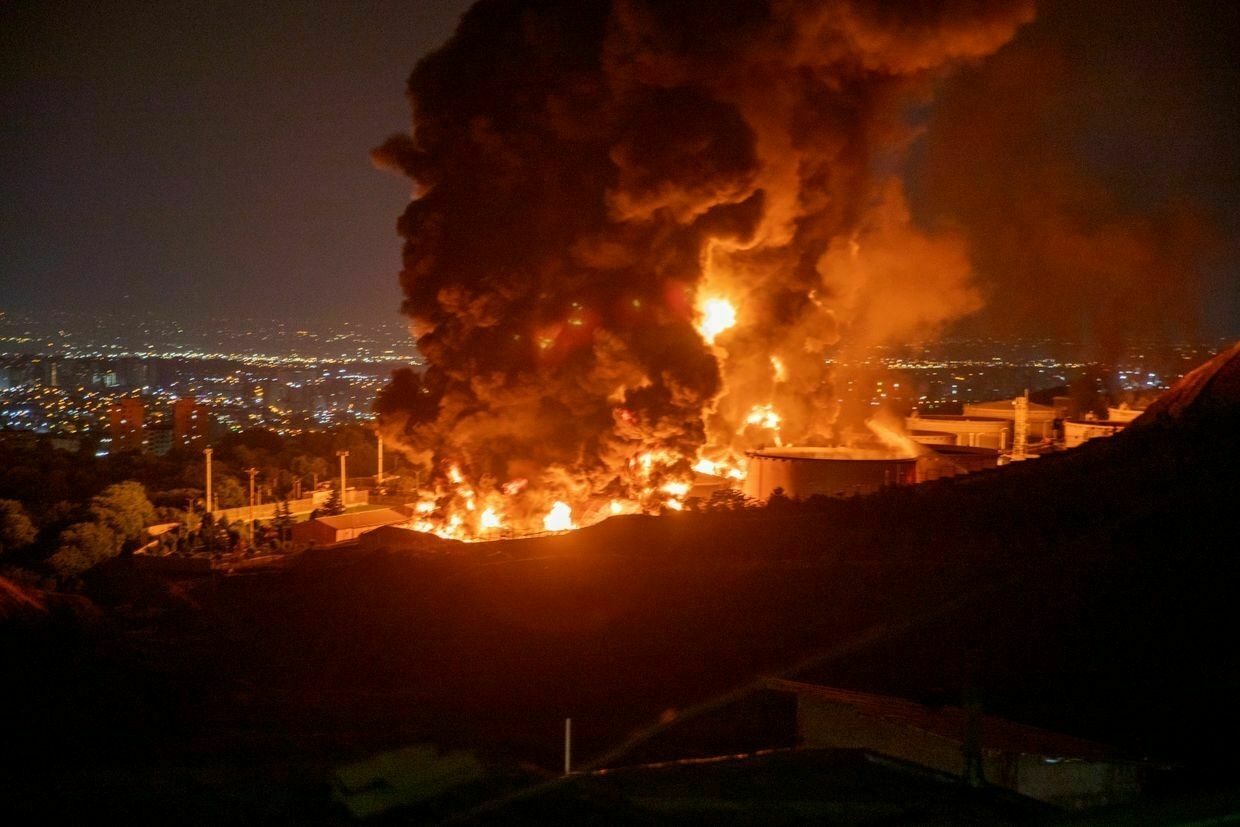
After months of stalling, Russia blames Ukraine, US for slow pace of peace talks
After months of diplomatic stalling, the Kremlin on June 29 blamed Kyiv and Washington for the lack of progress in peace talks, with Kremlin spokesman Dmitry Peskov saying the pace of negotiations hinges on Ukraine’s position, the effectiveness of U.S. mediation, and battlefield developments.
“A lot depends, naturally, on the position of the Kyiv regime,” Peskov told Belarus 1 TV, in comments reported by Reuters, adding: “It depends on how effectively Washington’s mediating efforts continue."
Russia has repeatedly refused to a U.S.-proposed ceasefire agreement, has escalated attacks on Ukrainian civilians, and Russian President Vladimir Putin declared earlier this month that “all of Ukraine is ours."
Peskov made the remarks in a televised interview, as the full-scale war enters its fourth summer with no comprehensive ceasefire in sight, and two mostly inconclusive rounds of peace talks.
Russia and Ukraine have held two rounds of face-to-face talks in Istanbul this year, first on May 16 and again on June 2, following more than three years without direct negotiations. The meetings resulted in significant prisoner exchanges, but no significant steps toward a ceasefire.
During the June 2 meeting, both sides presented proposals for ending the war, but Putin later describedthem as "absolutely opposite" memorandums.
Ukraine's delegation, led by Defense Minister Rustem Umerov, demanded an unconditional 30-day ceasefire, a position supported by Western partners, while Russia insisted on a 2–3-day limited truce to recover the bodies of fallen soldiers.
"Russia rejects even the very idea of stopping the killings," Umerov said after the talks. "That's why we appeal to the world: pressure is needed for real peace, not for an imitation of negotiations."
Despite the deadlock, Russia said it is open to a third round of negotiations. "In general, we are ready for this," Putin told reporters on June 27, suggesting Istanbul could again serve as the venue.
Turkish President Recep Tayyip Erdogan confirmed Ankara's willingness to host, and said efforts are underway to arrange a direct meeting between Putin and President Volodymyr Zelensky — possibly with U.S. President Donald Trump joining the talks.
Zelensky has expressed support for a trilateral format and discussed the idea during the recent NATO summit in Brussels, where he and Trump also spoke about enhanced U.S. military assistance and co-production of air defense systems and drones.
So far, Trump has not imposed the additional sanctions on Russia he promised if peace efforts failed. "If the Istanbul meeting brings nothing, that clearly means strong new sanctions are urgently needed," Zelensky said on June 2.
While the Kremlin continues to reject a broad ceasefire, its forces are advancing in Ukraine's southeast, gaining territory in Donetsk and Dnipropetrovsk oblasts, and intensifying missile and drone strikes on civilians.
No date has been set for the next round of talks.
 The Kyiv IndependentOleg Sukhov
The Kyiv IndependentOleg Sukhov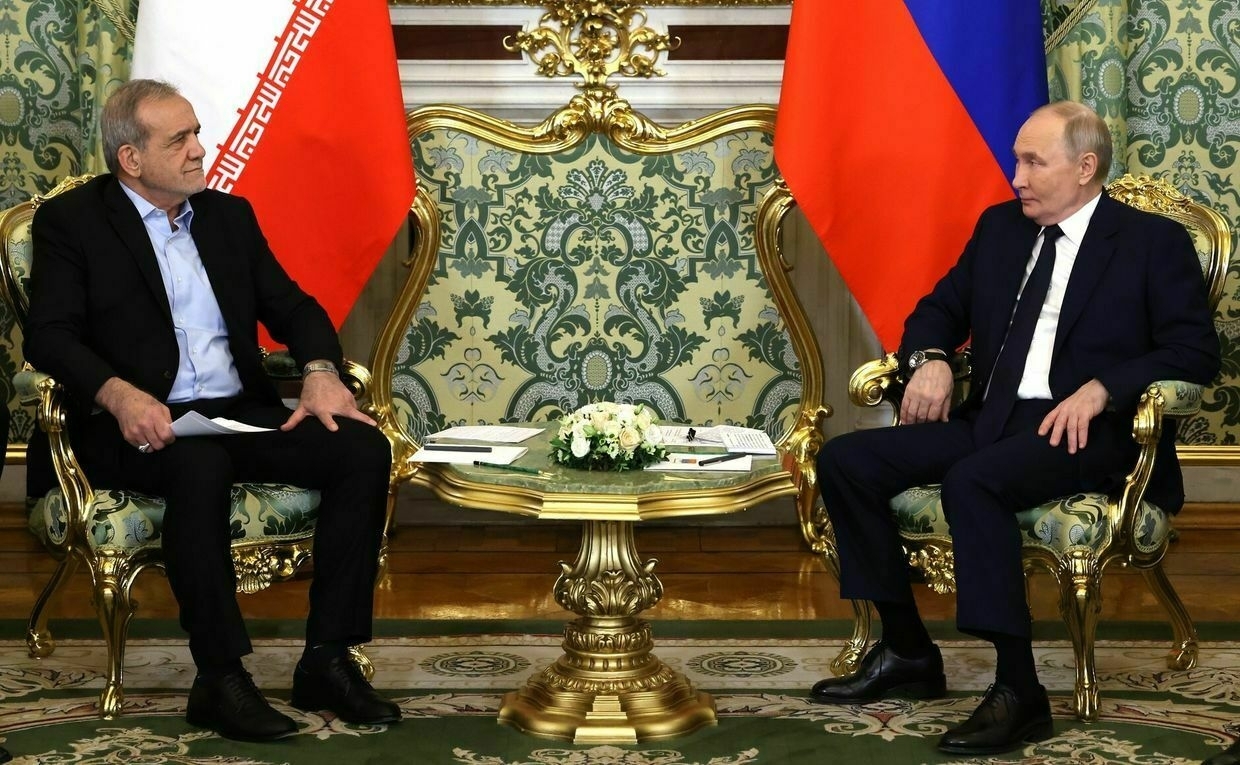
German minister vows to pursue 'every path' to boost Ukraine's air defenses
German Foreign Minister Johann Wadephul pledged on June 30 that Berlin is exploring "every possible path" to provide Ukraine with additional air defense systems, amid intensifying Russian missile and drone attacks, according to RBK-Ukraine.
Speaking at a press conference during his visit to Kyiv, Wadephul said Germany is working with its defense industry, European allies, and the U.S. to urgently secure more systems for Ukraine's air shield.
"We are going down every path available," Wadephul said. "The German defense industry is trying to expand its capacity. We're speaking with our European partners, and I believe we must also move forward with the United States."
He added that he remains in close contact with German Defense Minister Boris Pistorius to assess whether existing systems from Germany's own stockpiles can be redirected to Ukraine.
Wadephul's visit came just a day after Russia launched its largest aerial assault on Ukraine to date, firing 477 drones and 60 missiles in a 24-hour period. In a video message posted on social media earlier on June 30, the German minister described Ukraine as "a country once again haunted by war," and reaffirmed Germany's solidarity.
"Germany stands by Ukraine," Wadephul said. "We must not allow freedom to be lost here. We have to support this country and ensure that a ceasefire is finally achieved. (Russian President Vladimir) Putin must realize he cannot continue this war and must negotiate a peace solution."
Ukrainian Foreign Minister Andrii Sybiha welcomed Wadephul's visit in a post on X, saying the two discussed how to counter Russian aggression and deepen bilateral ties.
Sybiha said they also spoke about Germany's role in Ukraine's development of long-range capabilities and drones, calling it "win-win cooperation"— as well as Berlin's support for the 18th EU sanctions package and Ukraine's path to EU membership.
 The Kyiv IndependentChris York
The Kyiv IndependentChris York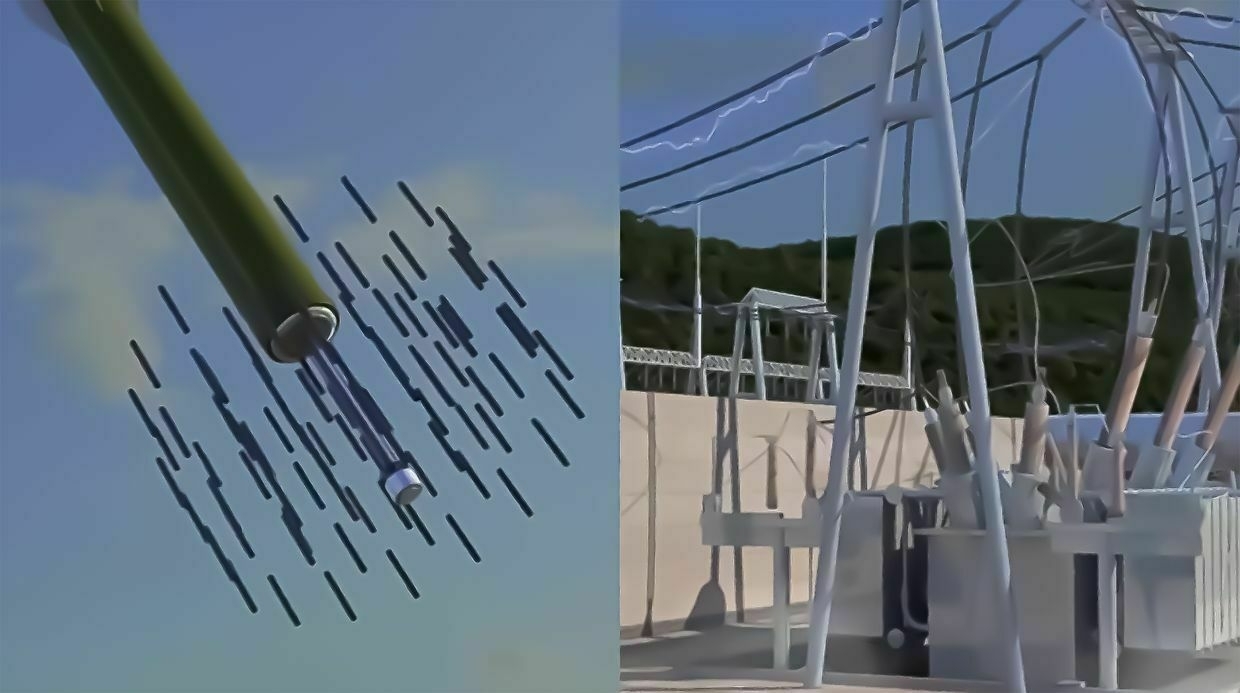
"I am grateful to Minister Wadephul for his moral clarity and personal contribution to Ukraine's resilience," Sybiha added.
Wadephul is expected to meet with President Volodymyr Zelensky later during his visit.
The German foreign minister emphasized that witnessing the destruction firsthand is critical to understanding Ukraine's suffering and the urgency of sustained international support.
"This is indeed a difficult situation," Wadephul said. "And that is why German solidarity is so important right now."
Note from the author:
Ukraine War Latest is put together by the Kyiv Independent news desk team, who keep you informed 24 hours a day, seven days a week. If you value our work and want to ensure we have the resources to continue, join the Kyiv Independent community.

